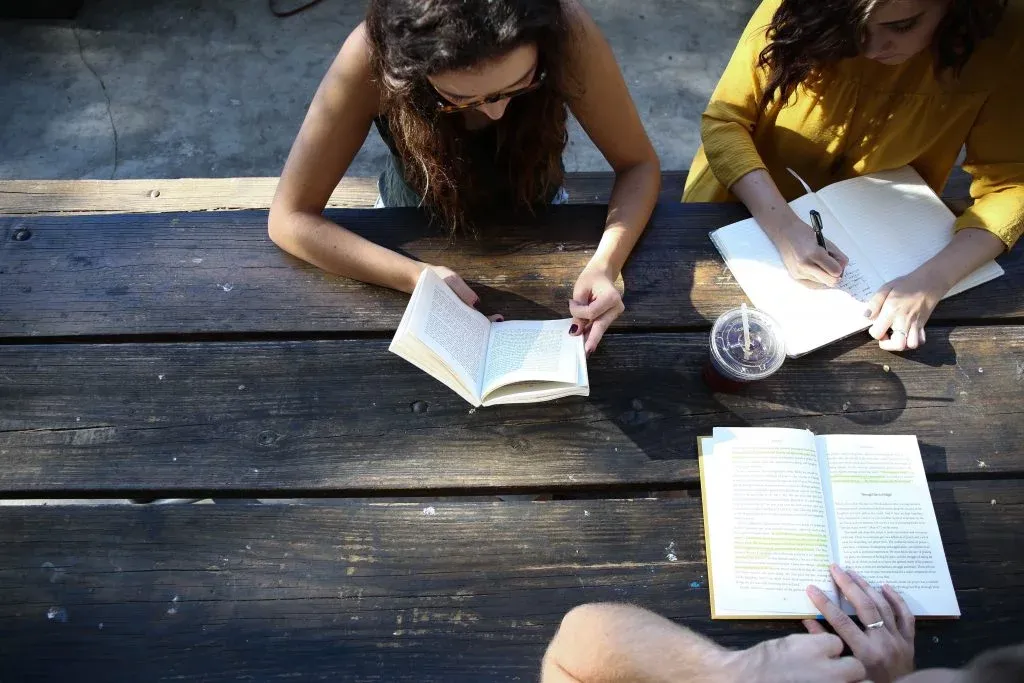Reading in another language is one of the best ways to improve your language skills. It can help to expand your vocabulary and expose you to different grammar structures and sentence patterns. Moreover, reading can be fun! Here are a few tips to help you start reading and better your English.
1. How do I start?
If you’re not learning English at the moment, it can be hard to know which level you are at. Macmillan offers a simple level test to check your level. Once you know your level, it’s best to choose reading texts that are a little lower than your level. This way, you won’t feel overwhelmed, and you will be more confident and motivated to continue.
Create a routine While getting started is easy, it can be more difficult to keep at it. Create a routine for yourself to practice reading 15-20 minutes each day. This can be before bed, at work or school, or even on public transport.

Read with a friend Finding a friend to read with also helps. You can talk about what you read, ask each other questions, and encourage each other. If you can, why not even start a book club?
2. What can I read?
Readers Readers are one of the best ways to start reading. They’re better than children’s books, which have a lot of strange words and sounds, and you can pick a genre you enjoy. You can also choose books that you have already read in your own language or novels that have been made into films – these stories will be familiar, and you will understand the vocabulary and plot more easily. The Melbourne City Library has nearly 800 readers for different levels. Just search “ESL Fiction Reader” in the Collection box.
Reading exercises Reading exercises help you check your comprehension skills, learn new vocabulary, and practice reading strategies such as skimming and scanning. One of the most popular websites is Breaking News English, which looks at current events, and offers 6 levels of difficulty to choose from. Learn English and Using English also have a variety of exercises for different levels.
 Transcripts and subtitles Listening and reading at the same time will help you read at a natural speed and understand stress and pronunciation. Images will also allow you to understand meaning better. You can listen to audiobooks, watch short TEDtalks, or choose to watch movies and television programs (in English, of course!) with English subtitles.
Transcripts and subtitles Listening and reading at the same time will help you read at a natural speed and understand stress and pronunciation. Images will also allow you to understand meaning better. You can listen to audiobooks, watch short TEDtalks, or choose to watch movies and television programs (in English, of course!) with English subtitles.
Online newspapers Newspapers offer more advanced vocabulary and grammar. The BBC offers short articles for people with little time on their hands, while The Guardian and the New York Times offer more in-depth stories and opinion pieces.
Social media For readers of any level who are in a rush, try following some Twitter or Instagram accounts. The texts are short, and there are a variety of people and topics you can follow.
3. How do I improve further?
Read and then write After reading, practise summarising or paraphrasing what you read. Show it to your teacher to check your grammar, comprehension and vocabulary.
Expand your vocabulary Keep a vocabulary journal of all the new words you have read and revise regularly. You can also use a website/app like Quizlet to create flashcards and do exercises to help you remember.
Visualize what you read Picturing scenes in your head or drawing what is described helps you understand what you reading on more than one level, especially if you are a visual learner. You can also create timelines or charts to make connections between characters, ideas, and words.
Relate it to your own life Thinking about how a text relates to you will help you remember new words and understand the context, too. How can you use the words in real life? In what situations will the statements or sentences apply?
There are so many ways to practice reading and improve your English skills. Choose topics you like and people to read with. It doesn’t have to be a chore! So, don’t waste any more time, and start reading!



